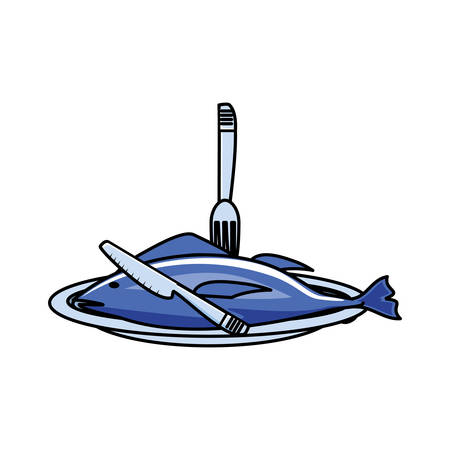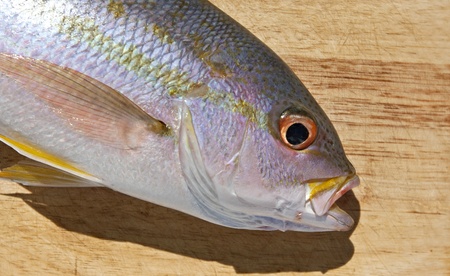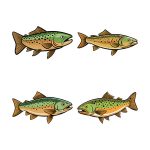1. Why a Fishing License Matters
Getting a fishing license might seem like just another step before you can start casting your line, but it plays a much bigger role than many new anglers realize. In the United States, fishing licenses are essential for protecting natural resources, supporting local communities, and making sure future generations can enjoy the sport too.
Conservation and Wildlife Management
One of the main reasons fishing licenses exist is to help fund conservation efforts. The money collected from license sales goes directly toward maintaining healthy fish populations, protecting habitats, and supporting research projects. This ensures that both game and non-game species thrive in their environments.
How License Fees Are Used
| Use of Funds | Description |
|---|---|
| Fish Stocking Programs | Releasing fish into lakes and rivers to maintain population levels. |
| Habitat Restoration | Repairing or improving aquatic habitats damaged by pollution or development. |
| Biological Research | Studying fish behavior and health to guide management decisions. |
| Enforcement | Funding game wardens and rangers who ensure regulations are followed. |
Supporting Local Ecosystems
A fishing license helps support the ecosystems where you fish. Healthy waterways mean better fishing experiences—not just today, but for years to come. By funding efforts that keep waters clean and well-managed, licenses play a key role in preserving nature’s balance.
Why It Matters for New Anglers
If youre new to fishing, understanding the purpose behind licensing helps build respect for the sport and its impact on the environment. Its not just about following rules—its about being part of a larger community effort to care for our natural resources.
Quick Tip:
Many states offer discounted or even free fishing days when no license is required—great opportunities for beginners to try out fishing before committing to a license!
2. Types of Fishing Licenses
When youre just starting out as an angler, figuring out which fishing license you need can feel a bit overwhelming. But don’t worry—once you know the basic types, it’s pretty simple to choose the one that fits your needs. In the U.S., fishing licenses are generally categorized by water type and residency status. Heres a breakdown of the most common license types:
Freshwater vs. Saltwater Licenses
The first thing to consider is where you plan to fish—freshwater or saltwater. Many states issue separate licenses for each, while others offer combination options.
| License Type | Where Its Used | Best For |
|---|---|---|
| Freshwater License | Lakes, rivers, streams | Anglers targeting species like bass, trout, or catfish |
| Saltwater License | Oceans, bays, coastal waters | Anglers fishing for species like redfish, snapper, or sea trout |
| Combo (Freshwater + Saltwater) | Both freshwater and saltwater areas | Those who want flexibility to fish in both environments |
Resident vs. Non-Resident Licenses
Your residency status also affects which license you should get. States typically offer different pricing and options depending on whether you live in that state.
| License Type | Who Its For | Main Benefit |
|---|---|---|
| Resident License | People who live in the state full-time | Lower cost and access to local discounts or packages |
| Non-Resident License | Visitors from other states or countries | No residency required—great for vacation trips or occasional outings |
Short-Term vs. Annual Licenses
If youre only planning to fish once or twice, many states offer short-term options that might be more affordable than buying an annual license.
| License Duration | Description | Ideal For |
|---|---|---|
| 1-Day or 3-Day License | Covers a limited number of consecutive days; usually cheaper upfront | Tourists or casual anglers trying out fishing for the first time |
| Annual License | Covers an entire calendar year; often more cost-effective long-term | Regular anglers who plan to fish multiple times throughout the year |
Younger Anglers and Senior Discounts
Many states allow children under a certain age (often 16) to fish without a license. Seniors may also qualify for discounted rates or lifetime licenses, depending on the state.
A Quick Tip:
If youre not sure which license you need, check your state’s fish and wildlife website—they usually have easy-to-use tools to help guide you through the process.
Selecting the right type of fishing license depends on where youll be fishing, how often you plan to go, and whether youre a resident of the state. Knowing these basics can save you money and keep your fishing trip legal and stress-free.

3. How to Get a Fishing License
Getting your fishing license is easier than you might think. Whether youre planning a weekend fishing trip or just trying the sport for the first time, heres a simple step-by-step guide to help you get started.
Step 1: Decide Where You’ll Be Fishing
The type of license you need depends on where youll be fishing — freshwater or saltwater — and which state youre in. Each state has its own rules, so make sure to check with your local fish and wildlife department.
Step 2: Choose Your License Type
Licenses can vary by duration and purpose. Here’s a quick breakdown:
| License Type | Description |
|---|---|
| Resident License | For people who live in the state where they’re fishing |
| Non-Resident License | For visitors from out of state |
| Short-Term (e.g., 1-day, 7-day) | Great for vacations or occasional trips |
| Annual License | Covers a full calendar year; best for frequent anglers |
| Youth/Senior License | Often discounted or free for younger or older anglers |
Step 3: Gather the Required Information
You’ll usually need to provide some basic details before purchasing:
- Full name
- Date of birth
- Address (proof of residency may be required)
- Driver’s license or ID number (in most cases)
- Social Security Number (sometimes required due to federal law)
Step 4: Choose How You Want to Buy It
Online Purchase
This is the easiest and fastest method. Most states offer official websites where you can buy your fishing license with a credit card and print it at home or save it digitally on your phone.
Local Retailers
You can also pick up a fishing license at sporting goods stores like Bass Pro Shops, Cabela’s, Walmart, or even some bait shops and gas stations. Just ask an employee for help.
State Wildlife Offices
If you prefer dealing directly with officials or need specific permits, visit your local fish and game office.
Step 5: Keep Your License with You While Fishing
No matter how you buy it, always have your license on you while youre fishing — either as a printed copy or saved on your phone if your state allows digital versions.
Tip:
If youre unsure about the regulations in your area, most state websites also include helpful resources like maps, species guides, and seasonal rules to keep you informed and legal on the water.
4. State Regulations and Residency Requirements
When it comes to fishing in the U.S., rules and fees can vary quite a bit from state to state. Each state has its own fish and wildlife agency that manages fishing licenses, regulations, and enforcement. Understanding these differences is key for new anglers to avoid fines and enjoy a smooth fishing experience.
Residency Definitions
One of the first things to check is whether youre considered a resident or non-resident in the state where you plan to fish. This matters because license prices are usually lower for residents. While each state defines “residency” slightly differently, here are some general guidelines:
| State | Residency Requirement |
|---|---|
| California | Resident for at least 6 months prior to applying |
| Texas | Domiciled in Texas for 6 months; valid Texas ID required |
| Florida | Permanent address in Florida and driver’s license or ID card |
| New York | Lived in NY for more than 30 days with proof of residency |
Age Exemptions
Many states allow children under a certain age to fish without a license. Heres a quick look at common age exemptions:
| State | No License Required Under Age |
|---|---|
| California | Under 16 years old |
| Texas | Under 17 years old |
| Florida | Under 16 years old (residents) |
| Pennsylvania | Under 16 years old |
Special Rules for Military Members and Seniors
Military Discounts and Exemptions
If youre an active-duty military member or a veteran, many states offer discounted or even free fishing licenses. Some states also allow active-duty members stationed out-of-state but home on leave to fish without a license.
Seniors Benefits
Seniors often qualify for reduced-cost licenses or lifetime fishing privileges. The qualifying age varies by state, typically starting at age 65.
| State | Senior Benefits Start At Age | Benefit Type |
|---|---|---|
| Florida | 65+ | No license needed (residents only) |
| Pennsylvania | 65+ | $11.97 annual license or $51.97 lifetime license (residents) |
| Maine | 70+ | Lifetime license with one-time fee of $8 (residents) |
The bottom line is that each states fishing laws are unique, so its always smart to check local regulations before heading out. Knowing whether youre considered a resident, what age rules apply, and if you qualify for any discounts can save you time and money while keeping your fishing trip legal.
5. Penalties for Fishing Without a License
Fishing without a valid license might not seem like a big deal, especially if youre just casting a line for fun. But in the eyes of the law, its taken seriously—and it can lead to some pretty steep consequences. Each state has its own rules and penalties, but across the board, getting caught fishing without a license can cost you time, money, and even your right to fish in the future.
What Can Happen If Youre Caught?
If a game warden or wildlife officer finds you fishing without the proper license, you could be looking at more than just a warning. Here’s what might happen:
| Consequence | Description |
|---|---|
| Fines | You may have to pay fines ranging from $50 to over $500 depending on the state and situation. |
| Court Appearance | In some cases, you might be required to appear in court, especially for repeat offenses. |
| Confiscation of Gear | Your fishing equipment—like rods, tackle boxes, or even your catch—could be confiscated. |
| Points on Record | Certain states add violation points to your outdoor recreation record, which could affect future licenses. |
| License Suspension | If you’ve been caught multiple times, your ability to buy a fishing license in the future could be suspended or revoked. |
Why It’s Better to Stay Legal
A fishing license doesn’t just keep you out of trouble—it helps support conservation programs that protect fish habitats and ensure future generations can enjoy angling too. The fees from licenses go directly toward stocking programs, habitat restoration, and educational efforts. By staying compliant, you’re also helping preserve the sport you love.
A Simple Step That Makes a Big Difference
The process of getting a license is quick and affordable in most states. With many states offering online options and short-term permits (like day or weekend passes), theres really no reason to take the risk. Whether youre planning a solo trip or heading out with family and friends, make sure everyone has their license before hitting the water.
Pro Tip:
If youre unsure about your states fishing regulations or where to get your license, check with your local Department of Fish and Wildlife website. They often provide detailed guides and FAQs that are easy to follow—even for first-timers!
6. Tips for First-Time Anglers
Getting your fishing license is just the beginning of your angling journey. If youre new to fishing, there are a few helpful tips that can make your first experience more enjoyable—and legal! Heres what you need to know before casting your line.
Check Local and Seasonal Regulations
Fishing rules can vary by state, season, and even specific bodies of water. Always check with your states fish and wildlife agency to understand:
- Open seasons for different species
- Size and bag limits
- Special rules for catch-and-release areas or protected zones
Most states have easy-to-navigate websites where these details are updated regularly. Keeping up with regulations helps protect fish populations and ensures youre fishing within the law.
Use Official Mobile Apps
Many states now offer official mobile apps that make managing your fishing license a breeze. These apps often let you:
- Buy or renew licenses
- Store digital copies of your license
- Receive real-time regulation updates
- Check local fishing conditions or report catches
Examples of State Fishing Apps:
| State | App Name | Main Features |
|---|---|---|
| California | CA Fish & Wildlife App | Digital licenses, regulations, location-based alerts |
| Texas | Outdoor Annual by TPWD | License storage, regulation updates, fishing reports |
| Florida | FWC Fish Hunt FL App | E-license, harvest reporting, maps of public waters |
Keep Your License Handy at All Times
No matter where youre fishing—whether from a boat, shoreline, or pier—you must have your license on hand. If you’re using a mobile app, make sure your phone is charged and accessible. Some areas may ask to see proof at any time.
Ask Questions and Learn from Others
If youre unsure about any rule or process, don’t hesitate to ask fellow anglers or local bait shop staff—they’re usually happy to help beginners. Joining a local fishing group on social media can also be a great way to learn tips specific to your area.
Plan Ahead for Renewals
Most fishing licenses are valid for one year from the date of purchase. Set a reminder on your calendar or app so you dont forget to renew it. Some states even allow auto-renewal options through their online systems.
Your First Fishing Trip Checklist:
- Valid Fishing License: Printed or stored on an approved app
- Aware of Local Rules: Know what species you can keep and how many
- Tackle Ready: Rods, reels, bait/lures appropriate for target fish
- Sunscreen & Water: Stay safe and hydrated while outdoors
- A Positive Attitude: It’s about having fun and learning!
The more prepared you are before heading out, the better your chances of having a successful—and legal—first day on the water.


